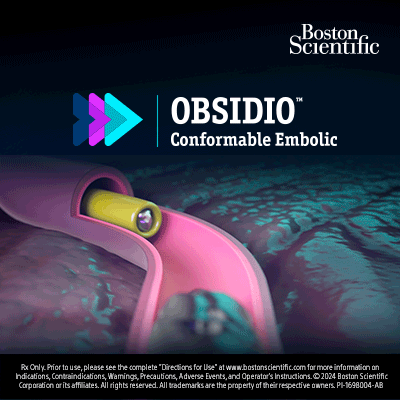SIR 2025
Embolization
Scientific Session
Late Breaking Abstracts
Remote-controlled endovascular navigation with a miniature, single-use, robotic system. Results of the ACCESS-PVI trial

Francois H. Cornelis, MD, PhD
Professor
MSKCC - Weill Cornell Medical College, United States
Ripal Gandhi, MD, FSIR
Interventional Radiologist
Miami Cardiac & Vascular Institute, Miami Cancer Institute, United States- DR
Dmitry Rabkin, MD, PhD
Assistant Professor
Brigham and Women's Hospital, United States - JD
Juan Diaz-Cartelle, MD
CMO
Microbot, United States
Presenting Author(s)
Author/Co-author(s)
Materials and Methods:
The ACCESS-PVI trial is a prospective, multi-center, single-arm, study evaluating the performance and safety of the LIBERTY® Endovascular Robotic System in human subjects undergoing peripheral vascular interventions. The system was evaluated in twenty (20) subjects undergoing peripheral vascular procedures at three (3) centers in the USA between July and October 2024. The primary endpoint was defined as successful robotic navigation of a guidewire and microcatheter to a pre-specified target in at least 95% of the cases without switching to manual manipulation. The secondary endpoint was safety evaluation defined by adverse device effects (ADEs) observed through three (3) days (±1 day) after the procedure. Other exploratory endpoints were also evaluated.
Results: Successful robotic navigation was achieved in all cases (20/20), yielding a success rate of 100%, thus meeting the primary endpoint of the study. No ADEs (ADE=0%) were reported through the duration of follow up, resulting in a satisfactory safety profile. Median navigation time was 3 minutes and the mean difference in radiation exposure between operator and control was (-)29.8 µSv.
Conclusion: Endovascular robotic manipulation of guidewires and catheters via remote control guidance using a miniaturized, disposable system was feasible and successful in all cases, minimizing radiation exposure for the operator while maintaining a desirable safety profile.


.jpg)